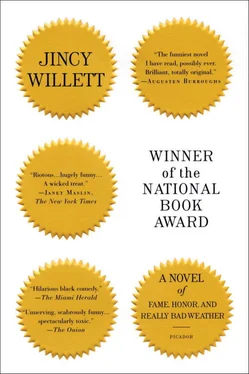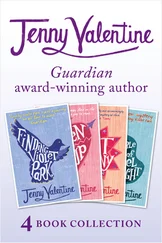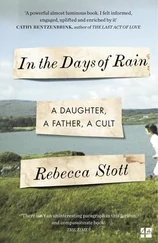“Come home with me,” I said.
“You know I won’t.”
“But I don’t know why.”
“Sure you do.”
“Whatever’s going on here, it isn’t love. It isn’t even love-hate. I’m not just talking about him now. You too. The two of you loathe each other. I don’t know how you can stand this.”
“You don’t know everything,” she said, patiently.
“Did he send you out here?”
“Of course not,” she said. “Yes,” she said, “but I’d have stopped you anyway. I need you,” she said.
And of course I helped her unpack the car. But from then on I slept poorly, and spent more time with my sister than with him. I refused to jog, but I did walk behind her in the early mornings, before leaving for the library, and trained my binoculars as often on her diminishing form as on the winter birds. I began to feel as though I were shepherding my sister through some long, serious, possibly final illness. I stopped drinking.
Probably of the three of us, Conrad suffered the most. He couldn’t taunt his wife anymore, and he couldn’t get lit up with me. And Guy and Hilda were gone. Despite his professed disregard for them, I think that in some odd way they functioned as his surrogate family. After his death we learned that he had mistresses stashed in all the major cities, three in southern California alone, but they were all more or less professionals, and not one seemed distraught at his passing. He simply had financial arrangements with them. In fact one of them wrote supportive letters to Abigail at the ACI, the gist of which was, the bastard had it coming to him. The point is, he had no friends. Only his literary agent came to the funeral, and he was just sniffing around after a fast postmortem buck. Guy and Hilda, as silly as they were, actually valued Conrad Lowe, and I think this meant more to him than he let himself believe.
Now he had no family, no punching bag, and no drinking buddy, and he was not doing well. Many nights he disappeared until two or three in the morning. Twice we got late-night calls from the local constabulary, and we had to drive down to the Westerly police station and collect him. Two weeks into the new year he wrapped the Plymouth around a copper beech, and after that he was stuck inside with us, as I refused to let him take my car.
One Sunday morning in early February I attempted to sneak out by myself for a solitary day at Squanto. I was halfway to the car when Abigail called to me from their bedroom window. I assured her that I’d be back by nightfall, but she insisted that I wait for her. I assumed Conrad was still asleep, but five minutes later they emerged together, too lightly dressed for the day. “Look,” I said, practically begging, “I need some time to myself. I just have to be alone.”
Abigail threw two satchels into the back seat and followed them in. Conrad rode shotgun. “Lead on,” he said to me, and slammed the door.
I drove for an hour in silence. After I crossed the Massachusetts line, Conrad asked where we were going. Montreal, I wanted to tell him. Halifax. Nunavut. “Purgatory Chasm,” I said, between my teeth.
“Hey!” Abigail said. “That’s a great idea!” I could tell she was genuinely pleased. This might have placated me, had we been alone.
“The Bishop Berkeley place, right?” asked Conrad, yawning. “Where he got struck by lightning and realized that the universe was chock full of nothing?”
“That was the other Purgatory Chasm.”
“There are two ? What a magnificent state.”
“You’re thinking of the one in Middletown. This one isn’t even in Rhode Island. And he did not hold that the universe was chock full of nothing.”
“Essie S. Perkippy. I knew her well.”
“We used to go to Purgatory Chasm all the time when we were kids,” Abigail said. “I love it there.”
“So what’s the deal?” Conrad asked. “Is it an amusement park, or what?”
“It’s just the Chasm,” Abigail said.
“It’s chock full of nothing,” I said.
“Whatever you say, ladies.”
The day was overcast, the temperature hovering just above freezing, and ours was one of only five cars in the lot. We could hear, from across the road, children playing on the swings and slides, and the push carousel, where my sister always threw up and I did not. Abigail led us through a pine needle-carpeted grove to an old picnic table beside a brick cookout oven, and immediately began to examine the table’s underside. Sure enough, there was
A.M.
D.M.
6/16/1949
deeply etched with Father’s boy scout knife. I remember being astonished that he would enable us to deface public property, and how he took me by the hand and showed me around the picnic grounds, pointing out all the old initials and avowals of constant love. When I was still skeptical, he said, “Think of it as a kind of library.” Actually, it was more of an archaeological site, where you could piece together the mating habits and linguistic vagaries of vanished tribes. On the evidence of these tables and trees, it apparently hadn’t occurred to the ancient scribes to etch obscenities until the early 1960s, at which point the quality of the printing itself suffered a downturn. Unless somewhere in Southern New England there’s a “Robet Ahearn,” it appears that some of them didn’t know how to spell their own names. Or maybe they just grew fatigued.
Abigail and I were enjoying identical flashbacks. There was something timeless about this place. We used to come here on hot humid summer days, while everyone else fled to Scarborough Beach and Point Judith, and here it was always cool and dry, and the air smelled of pine. They never modernized the playground, or widened the parking lot, and the rest of it was just a big rocky hole in the ground that had resisted change for at least fourteen thousand years, when the last Ice Age ended and unleashed a glacial torrent on a tectonic fault plane. The resulting deep jumble of boulders, spilling in a quarter-mile-long scar, is a pleasing anomaly in the surrounding Puritan landscape, the mysterious flamboyant red jigsaw piece in a sepia puzzle.
I hadn’t packed anything to eat, since I hadn’t planned to come here in the first place. I had driven here because, in addition to being a childhood refuge, it was the longest day trip I could think of. As I watched them unpack their satchels I had a startlingly vivid mental picture of myself backing quietly away and driving off, abandoning them to their own devices in the primeval forest. It could be hours before they even realized I was gone. The way everything turned out, I probably should have gone ahead and done it.
Abigail unpacked her usual depressing assortment of rabbit food, which she proceeded to ignore. Conrad had of course brought with him only liquid sustenance. I told him this was a state park, no drinking allowed, and he pointed to one of the green-painted wooden signs nailed high on a number of trees. “Loophole,” he said. The old signs read, as they always had,
NO BEERS, WINES OR LIQUEURS ALLOWED
For some reason, probably because “liqueur” is harder to spell than “liquor,” this misspelling had never annoyed me. I loved that over the decades these signs had been periodically repainted, and no one had corrected them.
“Lucky for me,” he said, tearing the seal off a pint of Jim Beam, “I decided, at the last minute, not to go with the crème de banana.” He unpacked his leather binder, flattened it open on the picnic table, and regarded me expectantly.
“I’m going for a hike,” I said.
“Wait for me,” Abigail said.
Conrad began to extricate himself from the table.
“What are you people? Twelve? Five? Stupid?” Suddenly I was yelling. “Leave me alone! For pity’s sake!” I stalked off toward the chasm, then whirled around, fully expecting them both to be three feet behind me. They remained seated, each looking off in a different direction, neither at me. I hate to raise my voice. Hate it.
Читать дальше












